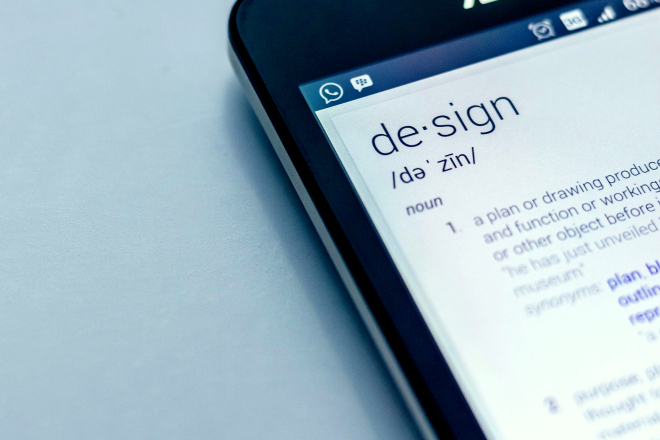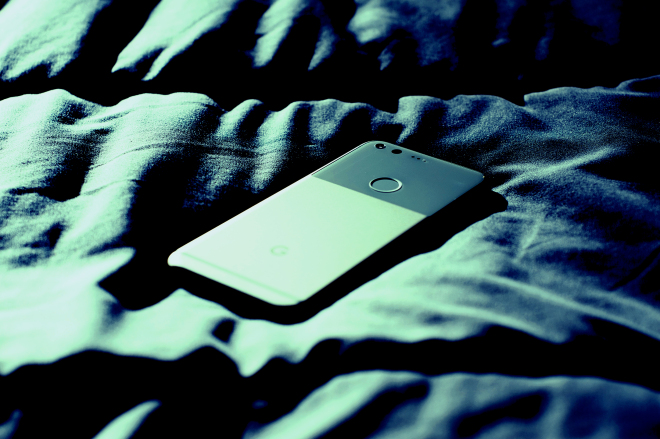Technology has changed so much in the span of my lifetime. From 1989 to 2017 isn’t that long, and everything before took much longer than the span of a life. In 1995, we were using Apple II’s and Windows 95 on absurdly expense desktops. A monitor a CRT monitor, a tube TV hooked up to a box the size of a handful of college textbooks. And no internet except that annoying sound of a dial-up connection that wasn’t easy to use. Then fast forward 5 years, and we have the first laptops that people actually use in everyday life. Then 7 years more and we have smartphones. Now almost everyone has a cell phone. It doesn’t matter where you look across the globe. In some places, they skipped the whole personal computer and went straight to phones instead.
This blog post isn’t about the technology, but what it does to people. What having an internet connection always at our fingertips does to us? That quickly gets to the idea that it matters what we do with the available tech out there. Technology is a tool and the effects are controlled by the user. The technology isn’t evil. The way we use it can be.
We’re connected all the time, and there’s an expectation that we’ll be reachable at most times. It seems unusual that someone can’t be reached unless they don’t want to be. But connection is still possible. And distance doesn’t mean what it used to. From across the world, it can feel like you’re in the same room. Using things like video chat, texting, e-mail, and phone calls. The latency, the time between sending something a receiving a reply, has really shortened. A letter takes anywhere from 3 to 7 days, and an e-mail takes a few seconds, and it’s free. Things could get even better with telepresence. Where you can remotely control a robot and facetime with anybody you run into or your robot runs into.
I should probably say I’m a smartphone Luddite, because I lack the physical ability to use one. I have a smartphone and use another person’s help to operate the device. I use a laptop with a drawing tablet and click with the other hand. That’s how I’ve written everything as a writer. The mental overhead of using an on-screen keyboard is exhaustive, but you can adjust to anything, right? I check my phone three times a day and that’s basically all the interaction I have with the smartphone thing.
 Stock from Unsplash, Adam Birkett. Enhancement by Graham Kar.
Stock from Unsplash, Adam Birkett. Enhancement by Graham Kar.
The other side of that is the constant distraction. A smartphone is a device designed to get your attention when something important happens. I know phones have a ton of settings about when and how to get your attention. The issue with that is the average user doesn’t meddle with deeper settings except for ringer volume. We’ll talk about a typical user. The phone is always with you and asking for attention. Unlike an actual person, you don’t actually know why the device wants your attention. And the whole thing is addictive. I’m probably using too strong a word.
 Stock from Unsplash, Rosalind Chang. Enhancement by Graham Kar.
Stock from Unsplash, Rosalind Chang. Enhancement by Graham Kar.
When your phone rings, there’s a need to answer. After five rings, the person calling goes to voicemail. Something like a text doesn’t carry the same urgency. There’s more time between each action. There’s an associated sound when each message comes. And each time that beep goes off, you know a message came in. It’s basically training. The beep is slowly associated with a message and eventually what you feel reading a message. Reading a message feels good. And then we crave that beep. Sometimes something strange happens. You hear that distinctive beep, check your phone, and there isn’t a message. Or something else makes a similar beep and you suddenly feel happy.
And the beep isn’t the end of it. If you don’t check the message it really bugs you. You’re constantly wondering what the message says. You think of possible messages that could have come in. And you can’t stop thinking about it until you read the message. That all depends on how frequently you get messages. The novelty can wear off depending.
That device designed to get your attention is always with you. Quickly pulling you out of a conversation or anything you’re focusing on. This is happening more now than before.
We can be reached at any time. That’s a good thing when nothing is going on. Interrupting a conversation to check your phone is quickly becoming a social taboo. And a distraction that frequently follows us. Multitasking has taken on a whole new meaning. Younger people are slowly specializing in multi-tasking. Switching between different tasks decreases the ability to focus on one task. It never feels like multitasking reduces how well we do things. But multitasking is actually switching between tasks multiple times. Getting refocused takes a long time. And now we’re searching for the zone or flow state. Multitasking reduces access to that state. Imagine being in that flow state all the time. How would that feel? Probably how multitasking feels except the results are better.
 Stock from Unsplash, Juliette Leufke. Enhancement by Graham Kar.
Stock from Unsplash, Juliette Leufke. Enhancement by Graham Kar.
We’re slowly moving away from being present. Being focused on the situation happening right before you is getting really hard. Ignoring a text message is really difficult and impossible at times. Not checking your phone is tough. It takes a special kind of person to decide differently. It’s like saving money. We save money for some future event and have less in the present. The ability to save can easily separate poverty from a better life. And saving money is historically a difficult thing. Credit card debt, insufficient retirement funds, college loans, and adjustable rate mortgages are all symptoms of the inability to save money. And reversing that is going to be really hard. Not being present is just as difficult a problem to fix.
The internet gives us access to information that would be unimaginable twenty years ago. A quick internet search could define verdigris in seconds. A fraction of a sec faster, you could remember if you already know the answer. The information in more readily available than ever before. It’s like the argument about calculators. Sure they make students terrible at mental math. They don’t need to do mental math every day. They know addition, subtraction, multiplication, and division. Practice changes nothing. Well, using a calculator for basic stuff took longer than doing it in my head. It was difficult for me to operate a calculator and do the math on paper. Practice is the only thing separating any of us in my belief.
 Stock from Unsplash, Prateek Verma. Enhancement by Graham Kar.
Stock from Unsplash, Prateek Verma. Enhancement by Graham Kar.
Looking up something isn’t everything. Memorization isn’t the mark of intelligence. In it’s simplest terms intelligence is how quickly you can bridge various things you’ve learned, and use what you have learned. The more disparate those ideas you connect moves into genius territory. That ability to make connections isn’t easily taught. In fact, we are taught specialization and compartmentalization. That goes to the fact that researching something isn’t the same as understanding. Memory versus intelligence. Take an encyclopedia. You need to know some things before using such a tool. Like the ability to read, and the ability to spell the topic you want to find. Knowledge helps you acquire more knowledge. Looking up something is throw away knowledge. It’s like studying for a test and forgetting everything. There’s no real point unless you use and understand the knowledge you find.
 Stock from Unsplash, Edho Pratama. Enhancement by Graham Kar.
Stock from Unsplash, Edho Pratama. Enhancement by Graham Kar.
This recent push to understand something quickly without too much effort is bothering me. Things like infographics, listicles, and tweets. They offer this tantalizing proposition of understanding something complex very simply. Infographics help show complex things in a way people understand. Except, a portion of the data is lost in the process. And the source can easily distort the data in that way. They choose what data to show and present it in a different way. Listicles bug me. They very rarely drill down to anything of substance. They thrive on presenting a wide array of information so that something works for the reader. Listicles promise understanding, a feeling of belonging, and quick/easy knowledge. They deliver not much of the promise generally. When there’s something useful it’s small.
The internet gives everyone a voice. You can find viewpoints you’ve never been exposed to. Like what it’s like to be a woman in tech. What it’s like when someone steals your cultural identity? What is it like to have an STI? What is it like having BPD? But there’s also the flip side to that. We frequently set up situations where we only hear the people that agree with us and completely dismiss other opinions as foolish. Then the nastiness that anonymity brings out. People frequently say stuff remotely through the web they would never say in person. #Gamergate, Trumpism, Fake News, Alt-Right, and so many other things wouldn’t be possible without the internet.
 Stock from Unsplash, Mark Solarski. Enhancement by Graham Kar.
Stock from Unsplash, Mark Solarski. Enhancement by Graham Kar.
The change in technology over my lifetime is massive. Now we have to figure out where to go from here. It’s a personal choice how we use technology. We have to decide to take in the good and search out what we’re missing. The goal is to understand people and not alienate them. The future is bright if we take it there. The world is filled with possible catastrophe around every corner it seems, but it’s up to us. We have to choose for ourselves where we want our little corners of the world to go.
Featured image stock from Unsplash, Roland Larsson. Enhancement by Graham Kar.
Share this:- More





